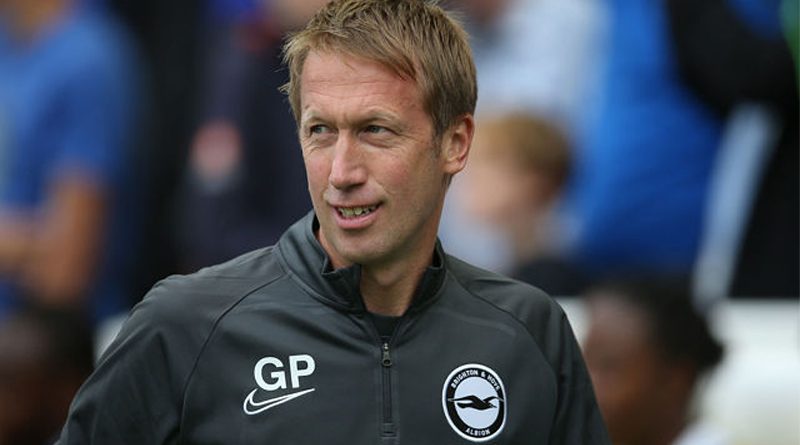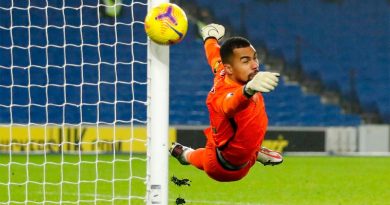Top 10 plan & long-term ambition – Brighton have forgotten the here & now
When Tony Bloom unveiled his ambitious plan to turn Brighton into a top 10 Premier League club in the summer, it was just the latest staging post in the sort of long-term thinking that had underpinned his decade as owner of the Albion.
From the moment that Bloom took over in the summer of 2009 having agreed to bail the club out of a significant hole by personally financing the construction of the Amex, he’s always looked to the future.
Overriding aim number one was to get the stadium built with Brighton as a Championship club. Bloom’s shrewd appointment of rookie boss Gus Poyet ensured that happened.
Next, it was become a Premier League outfit. Poyet and Oscar Garcia came close to getting us there, Sami Hyypia was a rare black mark against the chairman’s managerial judgement before Chris Hughton delivered top flight football so gloriously.
Remaining in the Premier League then became the aim. Hughton achieved that, securing finishes of 15th in 2017-18 and 17th in 2018-19. True, the football wasn’t great by the end but Hughton did everything asked of him and more.
Bloom’s decision to sack him at the end of last season was in part driven by results in the second half of the campaign – two wins in 18 games will cost most managers their job.
It was also because Bloom doubted that Hughton’s defensive style of play could turn Brighton into a top 10 Premier League team, the next stage of the Albion plan.
And so out went Hughton and in came Graham Potter, a young manager whose career CV read taking Swedish club Ostersunds from the fourth tier to beating Arsenal in the Europa League and an 11th placed finish in the Championship with Swansea City.
Potter was very much an appointment for the future. Bloom saw him as an investment who could help deliver on that plan to turn Brighton into a top 10 club.
Long-term thinking is all too rare in football, particularly the cut throat world of the Premier League. Because of the riches on offer, most clubs are simply desperate to stay up each year and don’t concern themselves with what is going to happen beyond the end of the current season.
That’s why David Moyes, Sam Allardyce, Mark Hughes and Tony Pulis so often crop up when a managerial vacancy becomes available at a struggling club.
None of those managers are long-term solutions, but when they have the tools to keep a club in the Premier League, their services will be in demand – no matter how short-term their appointment ends up being.
The question for Brighton is have the club gone too far the other way? Are the Albion doing so much long-term thinking that they’ve taken their eye off the here and now, which has plunged us deep into relegation trouble.
There’s every chance that we could end up in the Championship because Bloom and Paul Barber have become too obsessed with this plan for the future and becoming a top 10 Premier League club.
Everything Brighton do seems to be geared to the future. Take the decision to award Potter a two year extension to his contract after just four Premier League victories.
The Albion have won just two out of 17 Premier League games since – a record that will surpass the form which saw Hughton sacked should we fail to beat Wolverhampton Wanderers and Arsenal.
At the time, Bloom said, “In the summer we unveiled a new long-term vision for us to become an established top-ten Premier League club, and we feel even more strongly that Graham as a bright, energetic and innovative head coach, is the right man to lead us there.”
Potter’s new contract has put the Albion in a difficult position as, should the worst come to the worst, it makes sacking him an extremely awkward proposition.
Bloom and Barber are loathe to ever admit that they’ve got something wrong. We saw that when the club turned down Hyypia’s initial resignation, despite it being fairly obvious that we were heading for League One with the Finn at the helm.
That attitude of always having to be right shines through in Barber’s desperation to have the lost word on any matter.
We know of one prominent supporter’s group who rather brilliantly kept replying to every email that Barber sent about an issue they’d contacted him regarding, even when the discussion had run completely dry – purely because they knew he wouldn’t be able to not reply. This apparently went on for days.
Firing a bloke who you’ve just given a new six-year contract to is going to be a pretty big admission that you’ve cocked things up.
There is also the financial aspect to consider; removing Potter and his backroom staff of Billy Reid, Bjorn Hamberg and Kyle Macaulay would now be an expensive business in terms of paying up their contracts.
Brighton didn’t need to give Potter a new deal after four Premier League wins. It was a decision based on long-term thinking and not what was happening in the here and now.
Yes, we were playing better football than under Hughton – but we had only beaten three sides who would sack their managers before Christmas and a Norwich City outfit bottom of the table. Hardly an indication that Potter was the next Pep Guardiola.
This top 10 plan and long-term ambition has increasingly extended into what Brighton have done in the transfer market over the past few windows.
The majority of the Albion’s new signings have been made with one eye to the future. Take the January 2020 transfer window.
Reinforcements were very clearly needed to help in the fight against relegation; players who could make a real difference in the battle to stay in the Premier League from the moment that they arrived at the Amex.
Instead, we signed a 19-year-old right back from Chelsea who has played 45 minutes of Premier League football in his life and paid a fee to Boca Juniors so that our own 21-year-old Argentinian playmaker could come to the Albion six months earlier than planned.
Neither Tariq Lamptey nor Alexis Mac Allister has made the first team squad despite having been with the club for over a month.
This shouldn’t come as a surprise to anyone. It was never likely that two inexperienced players – and in the case of Mac Allister, one who faces the additional challenges of adapting to a new country, way of life and footballing culture – would make an instant impact in a relegation battle. Lamptey and Mac Allister have been brought in with the future very much in mind, rather than the here and now.
The same is true of most of the signings that Brighton made in the summer. Adam Webster is a young, ball playing centre half who we were told has the potential to play for England.
It was that potential that saw us fork out £18 million for him, in the process breaking up the Lewis Dunk and Shane Duffy partnership which happened to be one of the best outside the top six.
Duffy is a proven Premier League performer who won Player of the Season in 2018-19. Yet he’s been jettisoned to make way for the future.
Brighton have kept only five clean sheets all season, and three of those have come with Duffy in the back line. That tells its own story about who is the better option right now between him and Webster.
Proven Premier League defender Gary Cahill meanwhile signed for Crystal Palace for £18 million less than Webster cost. Cahill would never have been on Brighton’s radar because he doesn’t fit in with this obsession with the future.
Neal Maupay’s return of eight goals is decent enough for a young striker stepping up from the Championship, but he again has been bought more with the future in mind.
Leandro Trossard looked like an exciting young talent in his first few games for Brighton but has gone off the boil in recent months. Matt Clarke was signed from Portsmouth and then loaned straight out to Derby County.
Go back to last January when, just like Potter this time around, Hughton clearly needed reinforcements. Who did he get? Tudor Baluta and Jan Mlakar who were both immediately loaned back to Viitorul Constanța and Maribor respectively and we also spent spent the initial £7 million on Mac Allister.
Three players, none of whom could help Hughton immediately but all who we were promised would have big futures at the Albion. Over a year on and none of them have played a minute of Premier League football.
Those three are just the tip of the iceberg. The Albion have spent millions of pounds on signing players for the future who then disappear into the Development Squad before being sold a couple of years later.
Ales Mateju, Mathias Normann and Anders Dreyer all arrived amidst plenty of fanfare and for relatively big fees, only to never make a league appearance.
Then we come to Percy Tau and Billy Arce. Both were signed as future investments, seemingly with no real thought as to how they could legally come and play in Britain.
Neither seems likely to get a work permit anytime soon and in the case of Tau, Andy Naylor has been very vocal in recent months in stating that the Albion are likely to sell him in the summer after conceding he will never pull on a Brighton shirt.
Since the summer of 2018, Brighton have spent over £100 million on incoming transfers. Of those players signed for money, only two have been over the age of 26 – David Button and Aaron Mooy. Mooy and Dan Burn were the only players to have arrived at the Amex with any Premier League experience.
Having a plan to become a top 10 Premier League club and conducting all your business through a prism of what is going to happen two or three years down the line is all very well and good, but what happens when you become so obsessed with buying and planning for the future that you forget the here and now?
Barber said when Brighton unveiled the top 10 plan that they knew there would be hiccups along the way. The 2019-20 season so far is less a hiccup and more like a bloody great belch with accidental sick in it. The worst thing is that it is a mess of the club’s own making.
The Albion need to concentrate less on the future and more on what is going on here and now. The top 10 of the Premier League is going to seem light years away if we’re facing Barnsley on a Tuesday night next February.




